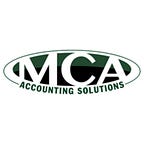IRS 280E: What You Need to Know
There’s been a lot of progress in the way people in the US think about cannabis and its uses. As of January 1, 2020, recreational use by adults is legal in 11 states and medical use is legal in 33 states.
At the federal level, though, cannabis is still what’s known as a controlled substance, which is an important distinction for accounting and tax purposes. If you own a dispensary, federal tax codes will apply differently to you than to other types of businesses. One tax law that’s particularly important to know is U.S. Code Section 280E, “Expenditures in connection with the illegal sale of drugs.”
But wait…if you’re a licensed dispensary owner, you’re not selling drugs illegally. So why does that statute apply to you?
Section 280E Explained: Legally Selling an Illegal Substance
As long as you have a licensed business that abides by the laws of your state, you’re within your legal rights to sell cannabis products. You’re not doing anything illegal as long as all of your activity and documentation happen at the state level. But you’re still a business, which means you still have to pay federal taxes.
That’s where the “illegal sale” comes in. Cannabis is still a Schedule I controlled substance, meaning that it’s subject to the highest levels of federal restrictions. Therefore, when you pay your federal taxes, Section 280E applies to you.
Section 280E says that if your business involves “trafficking in a controlled substance,” you can’t take any deduction or credit for the expenses you incur. You’re ineligible for basic tax deductions like payroll, advertising, and rent for your premises — deductions that the company in the next storefront probably takes for granted.
There is one notable exception, though, and that’s the cost of goods sold.
The COGS Exception
Your cost of goods sold (COGS) includes the direct costs associated with acquiring the product or, in the case of manufacturers, the cost of the product components.
In general, the COGS exemption opens up more deductions for cannabis cultivation or production businesses than for dispensaries. If you’re a cultivator or producer, most costs are directly related to the making of your product. You can deduct things like seeds, soil, nutrient blends, and even water and electricity. You can’t deduct shipping costs for the final product, though, since it’s considered trafficking (yes, even if you’re shipping within a state where cannabis is legal).
Dispensaries may not have quite as many deductions. You can deduct the cost of the product and, somewhat ironically, the costs associated with having it shipped to you — yes, even though manufacturers can’t deduct the shipping of the same product. That’s simply a function of US Code Section 471, which specifies what does and doesn’t qualify as COGS.
Learning More
Sections 280E and 471 can raise a lot of questions from cannabis business owners about what does and doesn’t count as a cost of goods sold. You don’t have to understand all of the details, but you do need to have someone in your corner who can answer the nuts-and-bolts questions for you.
My Cannabis Accountant has been working with owners of legal cannabis businesses since 2015 and can answer any questions you have about how tax laws apply to your company. To find out what you need to know, get in touch today.
